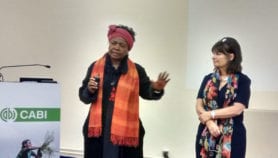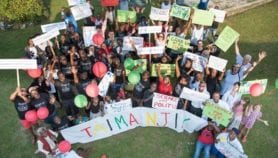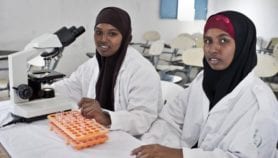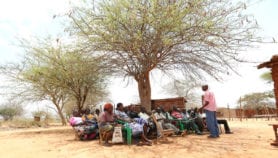By: Aisling Irwin
Send to a friend
The details you provide on this page will not be used to send unsolicited email, and will not be sold to a 3rd party. See privacy policy.
[RIO DE JANEIRO] The Organisation for Economic Cooperation and Development (OECD) has launched a consultation with developing countries on green growth — just as these countries have been criticising the UN Conference on Sustainable Development (Rio+20) negotiations for being disproportionately dominated by the idea.
The consultation, 'Green Growth and Developing Countries', was launched yesterday (17 June) at the Fair Ideas Forum, a Rio+20 side event, organised by the International Institute for Environment and Development.
It will comprise high level discussions on a green economy draft document, to begin this week at the Rio+20 summit (20–22 June).
The concept of a green economy — one of two principal themes at the summit — has been heavily criticised by some developing countries.
For example, there are fears that green economy policies could lead to economic adjustments imposed by the North, the erection of new trade barriers that would work against developing countries, and the corporate takeover of their natural resources.The broad idea is to find ways of reconciling environmental goals with economic growth and poverty reduction — but it is open to many interpretations.
Ivan Turok, deputy executive director at the Human Science Research Council, South Africa, told the Forum for Science, Technology and Innovation for Sustainable Development, in Brazil last week (11–15 June), that the phrase was "very seductive", promising the best of both economics and environment.
But the problem is that the phrase has multiple definitions, said Turok. He cited both claims from the UN Environment Programme that the green economy represented a "new economic paradigm", and claims from the World Bank that it did not.
Turok pointed out that the mechanisms proposed for achieving the green economy — including markets and pricing, government subsidies and regulation, government investment, capacity building, and stakeholder partnerships and collaboration — contradicted each other.
Tim Jackson, professor of sustainable development at the University of Surrey, United Kingdom, told the Fair Ideas Forum that "if we are not honest about addressing the [green economy-related] tensions" between developing and developed countries, the phrase would not just be "meaningless, but also dangerous".
At yesterday's launch, Serge Tomasi, deputy director of the OECD's Development Co-operation Directorate, said: "It is true that developing countries have had some concerns".
But he added that many developing countries are changing their minds, and "the situation is moving very quickly".
Kevin Urama, executive director of the African Technology Policy Studies Network, told the meeting: "green growth is about the only option for developing countries to achieve sustainable development. It's just a way of saying: 'use your resources better'".
"If African countries don't [value and deploy their natural resources] they will have more foreigners grabbing their assets."
Both Urama and Tomasi said that the green economy's nebulous definition could be advantageous, because it would enable nations to define it for themselves and to plan how to achieve it according to their specific circumstances.
But they said that while much could be achieved at national level, an expression of support for the concept in the Rio+20 outcome agreement would be useful, because it would have a trickle-down influence on decision-making.
Link to Green Growth and Developing Countries consultative draft report document ![]() [2.09MB]
[2.09MB]
This article is part of our coverage on Science at Rio+20. Read more in our live blog.
More on Networks


Script media release
Journalists offered ‘big break’ mentoring opportunity from Radio Nigeria
03/04/19












